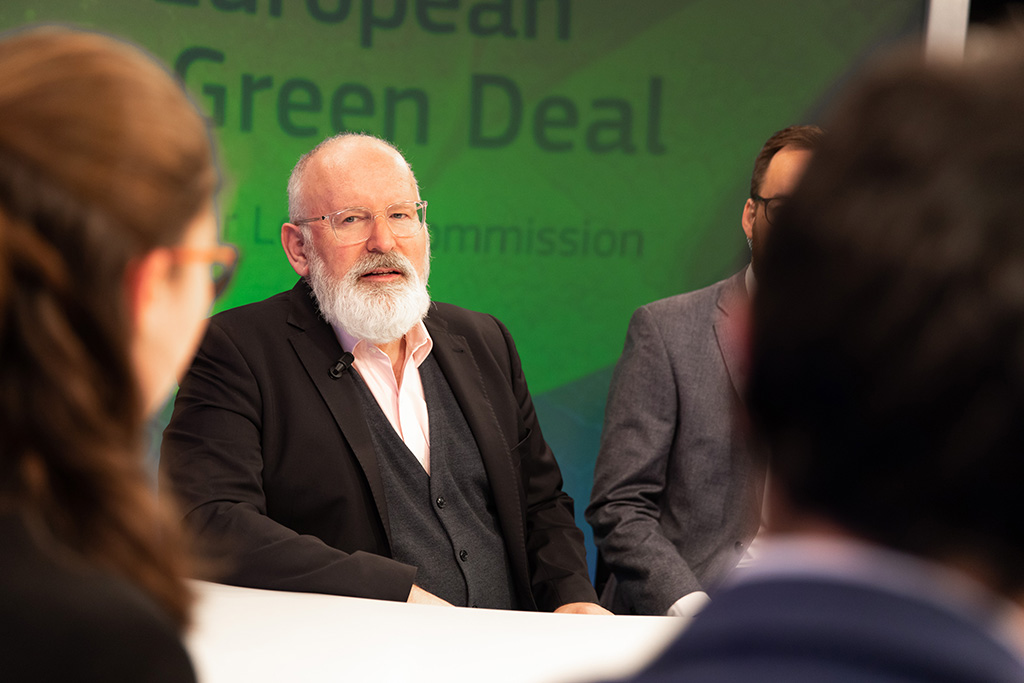
Over the last few years, climate change diplomacy captured the attention of policymakers and made the case for a low carbon energy transition. Countries have taken some measures to reduce emissions and to adapt to the impacts of climate change, even if these fall short of what is required to meet the goals of the Paris Agreement. The European Union as a self-proclaimed directional climate leader is very active in leading the energy transition through the European Green Deal and its goal of becoming the first climate neutral region by 2050. This project not only means a transformation of the European energy model, but also a transformation of European energy geopolitics, with new opportunities alongside some significant risks that need to be addressed. The geopolitics of the European Green Deal have to take into account the geographical position, the political ambitions and state capabilities, national preferences in the energy mix and the different approaches to mobility across member States. In this context, there will be winners and losers, although some of them are not as obvious as one might think. As we recently analysed at the Elcano Royal Institute, the most affected countries by the collapse in oil demand are going to be those more dependent on fossil fuels’ exports, without the economic strength and capabilities to adapt to oil price wars, like Algeria, Iraq, Iran, Libya, Nigeria and Venezuela. On the other hand, the winners of the energy transition will be those countries with the capacity to generate and export renewable energies, but also to act as transition companions of its neighbours, as is the case with Spain in the EU and the Western Mediterranean.
The #geopolitics of #energytransformation – we argue that governance matters. @SWP @goldthau Here https://t.co/snwENGytHZ pic.twitter.com/Gdwv2XpN5S
— Kirsten Westphal (@kirstenwestpha1) October 11, 2018
In this context, the SWP (Stiftung Wissenschaft und Politik) is leading the project Geopolitics of Energy Transformation, in collaboration with other European think tanks like the Institut français des relations internationals (Ifri), the Polish Institute of International Affairs (PISM) and the Elcano Royal Institute. The main goals, specified in the SWP project summary, are: to analyse the drivers of change in international energy relations, to explore how the matrix and the network of energy relations is changing the power dynamics between producers and consumers as well as the global energy governance (by transforming global supply and value chains and reshaping energy and economic spaces). The project focuses on three main regions, chosen in accordance with the impact that their energy transformation is likely to have on the EU: Asia-Pacific, Eurasia and the Middle East, and the Mediterranean and Africa. The project included a series of workshops in different locations with regional experts: Berlin (September, 2019), Paris (December, 2019), Warsaw (February, 2020), Madrid (March, 2020) and The Hague (May, 2020). Nevertheless, the Berlin and Warsaw meetings (held under the Chatham House Rule) were the only ones that took place: the Paris seminar was cancelled due to the strikes in France, while the COVID-19 pandemic prevented the Madrid and The Hague workshops from taking place. The project is however continuing albeit through on-line in-depth elite interviews with confirmed speakers.
Now at @PISM_Poland attending the seminar on The Geopolitics of Energy Transformation in the EU's Eastern Neighbourhood: Eastern Partnership, Russia, Central Asia, Persian Gulf pic.twitter.com/IBq5rwL9YR
— Gonzalo Escribano (@g_escribano) February 3, 2020
Participating in the 2nd day of the @PISM_Poland seminar on The Geopolitics of Energy Transformation, today focusing on the Persian Gulf pic.twitter.com/rPUJqiCOeN
— Gonzalo Escribano (@g_escribano) February 4, 2020
Today I was impressed by the contrasts in Palestinian energy landscapes: Israeli on-grid settlement and military outpost vs off-grid solar powered Palestinian nonviolence center and farm pic.twitter.com/PNMWYSksEr
— Gonzalo Escribano (@g_escribano) December 20, 2019
This ongoing work becomes essential in order to attain the final goal of the project: to help inform the German presidency of the European Union in the second semester of 2020 about the latest developments and narratives regarding the geopolitics of energy transition. Two of the German presidency priorities are focused on the implementation of the Paris Agreement and on increasing global climate ambition, as 2020 is a key year in terms of emission reduction targets that should be enshrined in an enhanced round of Nationally Determined Contributions and Long Term Strategies towards Net Zero emissions. Besides, the Federal Foreign Office wants to develop a better understanding of the geopolitical effects of the energy transformation, an interest also shown by its priorities in its non-permanent seat on the UN Security Council for the 2019-2020 period. Furthermore, as we have recently put forward at Elcano, the European Green Deal can actually act as a driver for the economic recovery after the COVID-19 crisis not only for Europe, but also for their neighbours and partners. Even in other areas that are not covered by the project, like Latin America, regional and national economic stimuli can be channelled through renewables and the energy transition.


